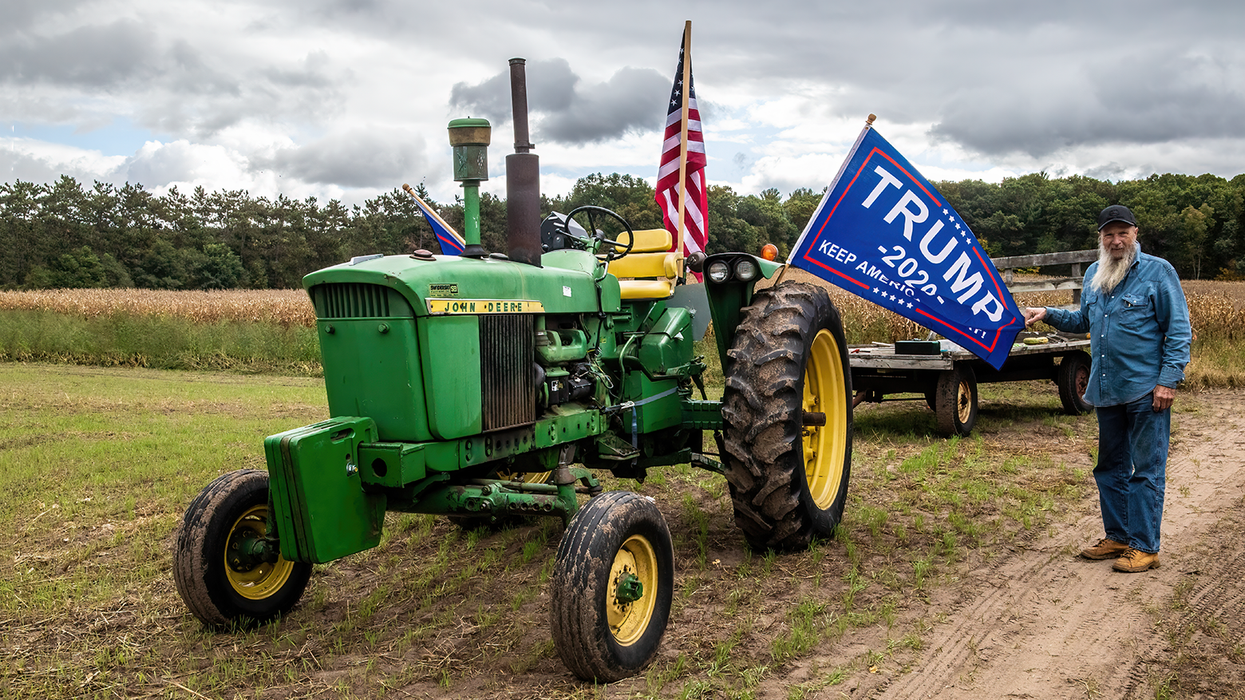Conservative analyst Jessica Riedl says tariffs damage economies by “raising prices, distorting markets, and encouraging foreign retaliation” against US exports, but Americans don’t see the “swamp-infested cronyism” as lobbyists “seek exemptions for individual businesses.”
These businesses, she said, include the farming industry, whose participants knowingly voted for the tariffs they now want to be excluded from.
During President Donald Trump’s first term, farmers nabbed $24 billion to compensate themselves for retaliatory tariffs resulting from Trump’s trade war. This included China’s 25 percent retaliatory tariff on U.S. soybeans.
READ MORE: 'That's propaganda': Parents fight back against new religious MAGA curriculum in OK schools
“Then, in 2024, even as candidate Trump promised a more aggressive trade war that could cripple the farm economy, rural voters nonetheless preferred Trump to Kamala Harris by a 30-point margin. Trump earned a staggering 78 percent of the vote in the 444 counties most heavily dependent on farming,” said Riedl, a senior fellow with conservative think tank Manhattan Institute. “… In short, farm country voted overwhelmingly to unleash a new trade war, and now these same farmers and their political leaders want taxpayers to finance another round of bailouts to protect them from the consequences of their own votes.”
Trump is already asking his Agriculture Secretary Brooke Rollins to “have some programs in place” to mitigate farmers’ economic fallout, “but consumers and businesses who paid $16 billion in tariff costs last month are not receiving any federal taxpayer bailouts,” said Reidl. The brunt of the software, electronics, pharmaceuticals and energy industries also aren’t getting any broad-based federal bailouts. So, why should farmers, “who actively endured an earlier Trump trade war and then provided overwhelming vote margins to return Trump to the White House?"
“What happened to the Republican belief in individual accountability?” Riedl demands. “Republicans love to lecture low-income voters that poverty is a moral failing, and they argue that shielding poor families from the consequences of their poverty-inducing decisions will undermine the necessary incentives to change their behavior. Apparently, such tough-love approaches do not apply to Republican voters, who are always quick to explain why their own taxpayer bailouts and welfare payments are different.”
Trump’s first-term farmer bailouts weren’t even well distributed. They “egregiously tilted toward the wealthiest agribusinesses,” according to an American Enterprise Institute study that found the biggest beneficiaries were “the largest 10 percent of farms, with average annual gross farm incomes of $2.14 million." This is because decades of government planning in agriculture consolidated most farm production toward corporate agribusinesses with a politically aggressive network of lobbying organizations, which “have built real power in Washington,” Riedl said.
READ MORE: Behind Trump's grotesque and obvious racist dog whistle to the right
“If President Trump and congressional Republicans believe tariffs are good for America, then they should embrace their consequences,” she argues.
Read the full Dispatch report here.


